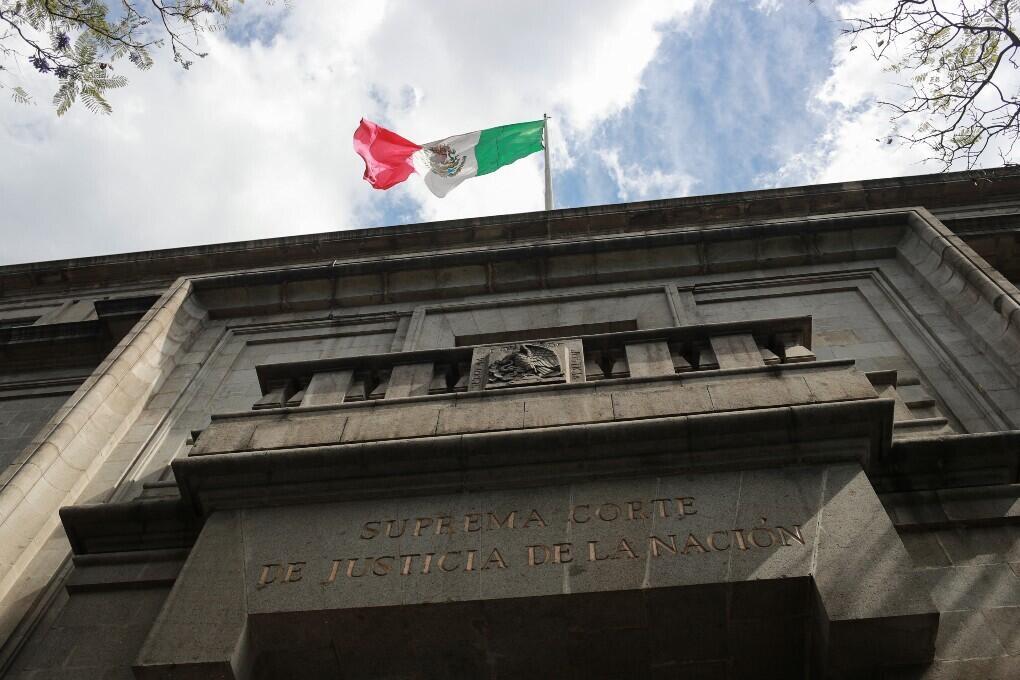First modification:
The Supreme Court of Justice of the Nation (SCJN) of Mexico elected its first president, Norma Piña, on Monday, after a succession process marred by accusations of plagiarism against another magistrate who was competing for the position.
Norma Lucía Piña was elected on Monday, January 2, to head the Supreme Court for the period 2022-2026. In a solemn and public session at the headquarters of the highest court in the country, the ministers voted for Piña, with six votes out of 11, as the new head of the SCJN after presenting five candidates.
In her first speech in the new position, Piña highlighted the importance of a woman presiding over this justice body for the first time, since she considered that an “inaccessible glass ceiling” had been broken.
“Being the first woman to preside over this highest court, I also represent women. On our behalf, I thank my colleagues for their consistency, I recognize the extremely important determination of the majority of this full court to break what seemed an inaccessible glass ceiling,” he said.

Likewise, Piña promised to work “for a fairer, more egalitarian society, without violence against women. That is a desire, there is no doubt about it, ”she settled.
Norma Piña is a graduate of the National Autonomous University of Mexico (UNAM). Since 2015 she was appointed judge of the Supreme Court, where until today she was minister of the First Chamber.
A vote in the middle of a controversy
On December 21, a report published in the media stated that another candidate for the highest office, Judge Yasmín Esquivel, had plagiarized her bachelor’s thesis.
The thesis of the Mexican Supreme Court Minister, outgoing from the Faculty of Higher Studies Aragón, would be similar to that of José Báez, a graduate of the UNAM Faculty of Law, in this same house of studies.
Esquivel has insisted that she was the kidnapper, that the files of the institution where she studied were manipulated and that everything is a ruse to discredit her before her aspiration to preside over the high court.
Esquivel’s denial triggered an investigation by his alma mater, the National Autonomous University of Mexico (UNAM), which is ongoing.
The National Autonomous University of Mexico said that it is evident that there was plagiarism in one of the two theses published in the 1980s, but that more investigations were necessary to find out who copied whom.
Reaction of Andrés Manuel López Obrador
Faced with the questions, the president, Andrés Manuel López Obrador, assured in his morning conference that the election in the Supreme Court is “independent” and “free”, but accused the Judiciary of being kidnapped by interests.
Andrés Manuel López Obrador had nominated Esquivel to serve on the 11-member court in 2019 amid controversy over being the wife of a contractor close to the government.
The current president had also criticized the Latinus media plagiarism report as an attempt to discredit the government and what he calls its transformation of Mexico.
Norma Piña replaces Arturo Zaldívar

Norma Piña, proposed by former President Enrique Peña Nieto (2012-2018), replaces Arturo Zaldívar, who has been in charge of the presidency since 2019. Zaldívar was considered a progressive judge but was too close to President Andrés Manuel López Obrador, who was very popular in social networks, for example, posting videos on TikTok.
Among the most notable votes during Zaldívar’s term, the decision of the Supreme Court to stop considering abortion a crime, to consider certain immigration reviews unconstitutional, and his pronouncement in favor of regulating the consumption of marijuana stands out.
Faced with these decisions, held by groups defending human rights, there were others highly criticized that were aligned with pro-government proposals such as the Court’s endorsement of the permanence of the Armed Forces in security work or the electricity law, questioned in court minors for limiting free competition.
With EFE, Reuters and AP












